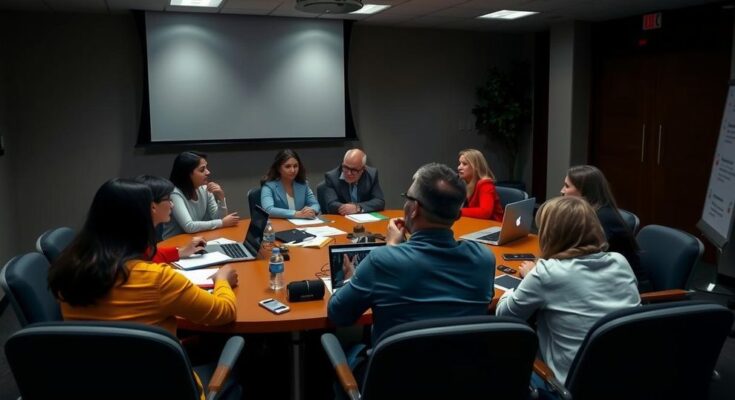Recent statistics expose a shocking rise in sexual violence against children, emphasizing its prevalence and the urgent need for action, especially at the Global Ministerial Conference in Bogotá. The data reveals that millions of children suffer in silence, and the call to action involves reinforcing schools with trained personnel, open reporting channels, and an emphasis on comprehensive sexuality education to combat these issues effectively.
In a world where safety should reign, millions of children tumble into the dark shadows of sexual violence, victims of a cruel reality. Recent statistics reveal that 82 million girls and 69 million boys suffered sexual violence last year, often within safe havens like homes and schools. The advent of technology has bred new dangers, with over 300 million children falling prey to online exploitation, intensifying the urgency to address these grave issues as governments gather in Bogotá, Colombia, at the Global Ministerial Conference on Ending Violence Against Children. As experts and organizations rally in Bogotá, a clarion call emerges for decisive action to confront school-related sexual violence (SRSV). This form of violence is multifaceted: it emerges in coercive relationships tied to grades, pervasive harassment from both teachers and peers, and insidious online threats, leaving girls in the crosshairs of immediate danger. Moreover, boys, LGBTQ+ youth, and children with disabilities often navigate this treacherous landscape in silence, paralyzed by stigma and entrenched discrimination. The consequences are dire—school abandonment, lost learning opportunities, and the specter of re-traumatization loom large for those constantly in proximity to their aggressors. Addressing SRSV demands a multifaceted approach. Governments must invest in comprehensive training for school personnel, ensuring they are equipped to respond effectively. The presence of counselors skilled in this area is crucial, alongside robust sexuality education that fosters empowerment and awareness among students. Furthermore, governments should dismantle the walls of impunity, implement confidential reporting systems, and ensure collaboration among educational, legal, and judicial frameworks. This imperative is not merely from a position of urgency but a heartfelt commitment to provide justice and support for child survivors. With the summit in Bogotá, the world must awaken to the reality that SRSV is not a remote issue—it is pervasive. Concrete steps must be taken to fortify schools, safeguarding the rights of all students against this insidious epidemic.
The issue of sexual violence against children has reached alarming proportions, with staggering figures revealing that millions worldwide suffer daily. Safe spaces, like schools, often become sites of harassment and abuse rather than protection. With the rise of digital communication, children are increasingly exposed to online threats, complicating the landscape of violence against minors. In this context, the Global Ministerial Conference in Bogotá emerges as a pivotal event aimed at galvanizing action against such violence, urging nations to tackle SRSV with seriousness and comprehensive strategies.
In conclusion, the Bogotá global gathering presents a critical opportunity to confront the widespread and heartbreaking issue of sexual violence in schools. Urgent measures are needed to protect children from the many forms that this violence can take, ensuring safe educational environments where all children can learn and thrive free of fear. Governmental commitment to substantial action can pave the way for cultural change that values protection and justice for the most vulnerable among us.
Original Source: www.hrw.org



